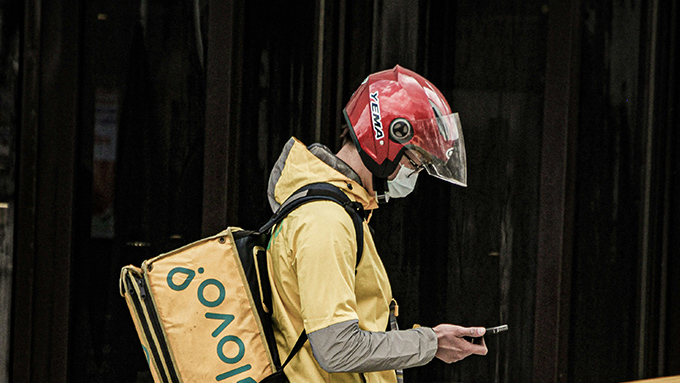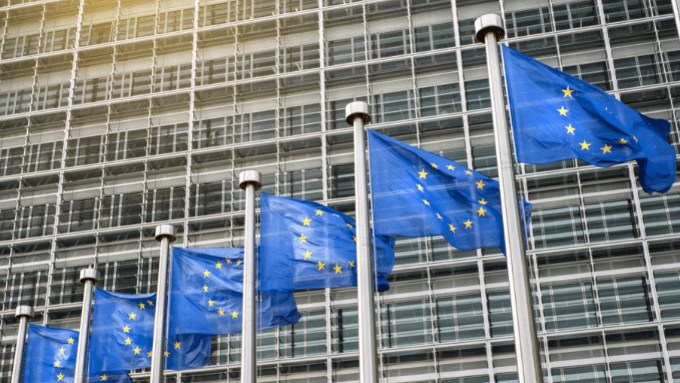The First Settlement Case in Turkish Competition Law
Introduction
The settlement mechanism has only recently been introduced to Turkish competition law practice. It entered into force with the amendment made to the Law on the Protection of Competition (“Law”) numbered 4054 on 16.06.2020, and has been in effect for less than two years. In this relatively short period of time, parties in a variety of cases under investigation received a penalty reduction based on reaching a settlement. However, the first settlement case that was reflected in the reasoned decisions of the Competition Board (“Board”) was the case that concluded with decision dated 05.08.2021 and numbered 21-37/524-258, published in late March 2022.
This investigation, which involved Türk Philips Ticaret A.Ş. (“Philips”), Dünya Dış Ticaret Ltd. Sti. (“Dünya”), Melisa Elektrikli ve Elektronik Ev Eşyaları Bilg. Don. İnş. San. Tic. A.Ş. (“Melisa”), Nit-Set Ev Aletleri Paz. San. ve Tic. Ltd. Şti. (“Nit-Set”) and GİPA Dayanıklı Tüketim Mamülleri Tic. A.Ş. (“Gipa”), was the first case that resulted in a settlement after all of the undertakings submitted their requests for settlement to the Competition Authority (“Authority”) and the requests were accepted by the Board. As it is the first concrete example of how the Board oversees the settlement procedure, the decision in question needs to be examined.
Scope of the Investigation and Procedural Steps
Philips, Dünya, Melisa, Nit-Set and Gipa are undertakings operating in the small household appliances market. In the investigation, which was initiated based on receiving complaints, the allegations against these undertakings were that they restricted the resale prices that their distributors and authorized dealers could charge, and prevented them from conducting sales over the internet.
It is well known that internet sales are principally considered to be “passive sales” from a competition law perspective. Therefore, restrictions imposed by suppliers on a buyers’ passive sales are considered vertical restraints which limit competition under Article 4 of Block Exemption Communiqué on Vertical Agreements No. 2002/2 and Article 4 of Law.
On 07.01.2021, after considering the findings obtained in the preliminary investigation, the Board launched its main investigation to determine whether the five undertakings listed above had violated Article 4 of the Law by intervening in the resale prices of their distributors and other authorized resellers, and restricting their internet sales.
Following the investigation decision of the Board, the investigated undertakings submitted their requests to submit commitments to the Authority in order to conclude the case without receiving any penalties. However, the Board did not accept these requests as the allegations were quite serious.
Subsequently, the investigated undertakings submitted their settlement requests to the Authority in May 2021. As a result of the settlement negotiations, the settlement proposals were submitted to the Authority in July. Then, with its interim settlement decisions dated 14.07.2021 and numbered 21-35/495-MUA, 21-35/496-MUA, 21-35/497-MUA, 21-35/498-MUA, 21-35/499-MUA, the Board determined the conditions of settlement. Subsequently, within the framework of the settlement proposals submitted by Philips, Dünya, Gipa, Melisa and Nit-set in July, it determined that it would be appropriate to conclude the investigation with a settlement.
Evaluations Regarding the Settlement Procedure
In general, when an investigation is concluded with a settlement, in the final decision of settlement, in addition to the elements that must be included in every reasoned decision according to Article 52 of the Law, the following additional elements that must be present:
a) The content of the allegations made against the party.
b) The nature and extent of the violation.
c) Evidence that forms the basis for the finding of violation about the party.
d) The administrative fine imposed on the party and the discount rate applied based on the settlement procedure.
e) The declaration that the party accepts the existence of the violation and the administrative fine.
When the decision is examined the following points become clear:
a) In the decision, it is clearly stated that the investigated allegations against the undertakings were (i) interfering with the resale prices of their buyers and (ii) restricting the internet sales of their buyers.
b) These violation allegations were examined in detail for each undertaking, and evaluations regarding the determination of the resale price were listed under paragraphs 73 and 160, and those regarding the prohibition of internet sales are listed under paragraphs 161 and 187. The Board evaluated the findings and provided explanations on how the undertakings committed the relevant violations.
c) Evidence regarding the violations is also extensively included in paragraphs 26 - 72 of the decision.
d) There are explanations regarding the discount rate to be applied to the parties and the administrative fine imposed under paragraphs 188-205 of the decision. Accordingly, the parties benefited from a discount in fines of 25% due to their settlement.
e) Finally, in paragraphs 206 – 213 of the decision, the conditions under which the parties had come to an agreement were discussed and it was stated that the investigated undertakings admitted to the existence and scope of the violation, accepted the maximum rate and amount of the administrative fine to be applied, and committed to not appealing against it.
Accordingly, within the framework of the interim decisions of the Board dated 14.07.2021 and the settlement proposals submitted by Philips, Dünya, Gipa, Nit-set and Melisa, the administrative fines calculated for each undertaking within the scope of the Penalty Regulation were reduced by 25% and the investigation was concluded with a settlement.
Conclusion
The examined decision is important in that it is the first settlement decision issued after the settlement mechanism was introduced to Turkish competition law. As a matter of fact, in the period before this decision, competition investigations could not be concluded early even if the investigated parties were willing to accept the allegations of a violation, and this was a situation that negatively affected the procedural economy for all stakeholders. This decision shows that the Board is open and willing to consider settlement applications and that it is possible to conclude an investigation early.
In addition, the decision reveals that it is possible for the investigated undertakings to settle even in cases with violations that are considered to be serious violations, such as fixing resale prices. The decision also constitutes a useful example for examining what elements must be present in the reasoned decisions issued in settlement cases.
An issue that needs to be emphasized is that even if an investigation process results in settlement, the determination of a violation and the related findings and evidence are also included in the settlement decision, as in an ordinary investigation decision. Considering that the undertakings lose their right to bring the violation finding and the administrative fines imposed before the courts once they settle, the inclusion of these findings and evidence in the decision is important in terms of compensation lawsuits that may be filed against the undertakings. As a matter of fact, it becomes considerably easier for third parties who prove that they have suffered injury to demonstrate the unlawfulness of a violation in compensation cases because the ability of the undertakings to refute this claim is significantly limited.
Another point to mention is that 25% is the maximum fine reduction that is permitted by the regulation in cases concluding with a settlement. Thus, this case illustrates that the Board is open to adopting and applying the highest possible remission rate of 25%. Therefore, it may be appropriate for undertakings with concrete evidence of violations stacked up against them to consider resorting to settlement.
All rights of this article are reserved. This article may not be used, reproduced, copied, published, distributed, or otherwise disseminated without quotation or Erdem & Erdem Law Firm's written consent. Any content created without citing the resource or Erdem & Erdem Law Firm’s written consent is regularly tracked, and legal action will be taken in case of violation.
Other Contents

The U.S. District Court for the District of Columbia (“Court”) issued its memorandum opinion (Memorandum Opinion) on November 18, 2025, in the antitrust case (“Case”) between the Federal Trade Commission (“FTC”) and Meta Platforms Inc. (“Meta”). The FTC alleges that Meta monopolized the market…

No-poach agreements, which have become one of the most prominent concepts in global competition law in recent years, are defined in the Glossary of Competition Terms as “agreements, whether direct or indirect, whereby one undertaking agrees not to make job offers to, or hire, the employees of another...

The Competition Board (“Board”) has broad powers to request information from undertakings. The legal basis for this authority is provided by Article 14 of Law No. 4054 on the Protection of Competition (“Law No. 4054”). Under this provision, the Board may request any information it deems necessary from public...

Competition authorities around the world have increasingly focused on labor market infringements under competition law, issuing new regulations and guidance recently. Notable examples include the U.S. Department of Justice and Federal Trade Commission’s joint guidance, the Japanese Fair Trade Commission’s...

Chapter 8 of the General Data Protection Regulation (“GDPR”) sets out the legal remedies available to data subjects in the event of a breach of their rights under the GDPR. Accordingly, each data subject has a right to lodge a complaint with the supervisory authority of the Member State in which they reside, work...

Mergers and acquisitions play a critical role in shaping the competitive structure of the market. Although such transactions can lead to positive outcomes such as the provision of products and services at lower prices, the development of new products and technologies, and improvements in quality, they may also...

Technology and the opportunities it brings undoubtedly play a key role in strengthening the competitiveness of market players. In this context, pricing algorithms that enable undertakings to monitor publicly available prices and optimize their own pricing strategies have become widely used, especially by digital platforms...

The Regulation on Fines to Apply in Cases of Agreements, Concerted Practices and Decisions Restricting Competition, and Abuse of Dominant Position (“Former Regulation on Fines”), which entered into force upon its publication in the Official Gazette dated February 15, 2009 and numbered 27142, was...

In the past years, the Turkish Competition Board (“Board”) has closely monitored the activities of undertakings operating in the retail sector. As a result of the Board’s record of administrative fines, horizontal type of violations in the retail sector have been highly publicized. Vertical violations such as resale price...

In recent years, numerous automobile manufacturers have announced their goals to reduce carbon emissions, with many brands setting net-zero carbon targets spanning from production processes to the lifecycle of their vehicles. While ongoing debates persist regarding the significantly higher carbon footprint of...

Under Article 15 of Law No. 4054 on the Protection of Competition (“Law No. 4054”), the Competition Board (“Board”) may conduct on-site inspections at the undertakings’ premises when it deems necessary in fulfilling the duties assigned to it. During the on-site inspection, the Board is authorized to examine all...

Agreements and information exchanges between undertakings in labor markets have recently been examined in various preliminary investigations and investigations initiated by the Turkish Competition Authority (“Authority”). Following the investigations in which some undertakings were subject to...

The Turkish Competition Board’s (Board) decision regarding the acquisition of the international road transport business line of Ekol Lojistik AŞ (Ekol) by DFDS A/S (DFDS) has been one of the most prominent transactions on the competition law agenda recently...

The Competition Board (“Board”) has broad powers to request information from undertakings. The Board’s authority to request information arises from Article 14 of the Law No. 4054 on the Protection of Competition (“Law No. 4054”). Under the relevant provision, the Board may request any information it deems...

Doğuş Otomotiv Servis ve Ticaret A.Ş. (Doğuş) applied to the Turkish Competition Authority for an exemption for the practice of recommending basic wages to be applied to sales and after-sales service employees of its authorized dealers and distributors...

Access to Instagram was blocked ex officio by the Information and Communication Technologies Authority (ICTA) as of 2.08.2024. Under Article 8 of Law No. 5651 on the Regulation of Publications on the Internet and Combating Crimes Committed Through These Publications, ICTA can issue an ex officio access...

It is well known that agreements between employer undertakings with regards to their employees, such as wage-fixing and non-poaching agreements, along with competitively sensitive information exchanges have been under the scrutiny of competition authorities all over the world, including the Turkish Competition...

Automotive is one of the sectors in which the world’s most significant investments are made. The Competition Board (“Board”) has been closely interested in the automotive sector over the years and has conducted various examinations and studies in this field...

Competition authorities around the world continue unabated to investigate competition concerns arising from data collection and processing activities of digital platforms and impose severe sanctions as a result...





The startup ecosystem in Turkey has experienced notable growth in recent years. In the last quarter of 2023, 81 startups secured a combined investment of around 60 million dollars. While the number of investments remained consistent when comparing the third quarter periods of 2022-2023, there was a decrease...

Hub and Spoke cartel is a type of violation that is not clearly defined and regulated under Law No. 4054 on the Protection of Competition (“Law No. 4054”). Decisional practices of foreign competition authorities, particularly the UK Competition and Markets Authority’s decisions (“CMA”), are instructive concerning...

The Competition Board ("Board") made an addition to its line of decisions on resale price maintenance with its decision on Sunny Elektronik Sanayi ve Ticaret A.Ş. ("Sunny") . In its decision, the Board thoroughly examined the allegations regarding Sunny's involvement in maintaining resale prices and restricting...

It is observed that the Competition Authority (“Authority”) has recently scrutinized various industries such as fast-moving consumer goods, labor market, pharmaceuticals, and cement. When the reasoned decisions of the Competition Board (“Board”) published in October are examined, it can be seen that the...

Jules Verne says, “Everything on earth has a limited lifespan, nothing that will exist forever can be created by human hands”. Perhaps change is the only constant concept in all our lives. Despite two major world wars and countless periods of crisis, humanity has been undergoing a great change and...

At the meeting of the Fédération Internationale de Football Association (“FIFA”) held on 16 December 2022, the FIFA Council approved the FIFA Football Agents Regulations (“FFAR”). In the FFAR, various amendments have been made, such as the introduction of a maximum service fee limit that football agents are...

Resale Price Maintenance (RPM) is still considered a hardcore restriction under the recently revised Vertical Block Exemption Regulation (VBER), which means that it cannot benefit from a statutory exemption under Article 101(1) TFEU, unlike certain other types of vertical agreements. However, it has been debated...

In competition law, it is important to accurately determine the concept of undertaking, especially in terms of mergers and acquisitions. Therefore, the concept of economic entity aims to reveal the economic units covered by the undertakings. The relationship between the concept of economic entity and family ties comes...

In these days when the Competition Board (“Board”) frequently imposes administrative fines for preventing on-site inspections and both the Competition Authority (“Authority”) and undertakings take legal and technical measures regarding on-site inspections, a striking development has occurred. In its decision...

Online advertising has become an important source for businesses for promoting products and services and meeting consumers, as a result of the rapid development of information technologies and increase in the use of internet. Delivering targeted messages to consumers at the right time through the digital...

Selective distribution systems refer to a type of distribution system in which suppliers commit to selling the contracted goods or services directly or indirectly to distributors selected based on specified criteria, while the distributors commit not to sell the said goods or services to unauthorized...

Fast-moving consumer goods is undoubtedly one of the sectors that the Competition Authority has been working most intensively since the COVID 19 pandemic. Among the most important developments of this period was the Sector Inquiry initiated on Fast Moving Consumer Goods (“FMCG”) Retailing...

In the decision of the Constitutional Court ("Constitutional Court" or "Court") dated 09.11.2022, numbered 2020/67 E. 2022/139 K. (the "Decision"), the annulment of certain articles of the Law Amending the Law on the Protection of Competition No. 4054 ("Law No. 7246") was requested...

In Turkish competition law, certain types of mergers and acquisitions are subject to Turkish Competition Board’s (“Board”) approval in order to gain legal validity. Pursuant to Article 7 of the Law No. 4054 on the Protection of Competition (“Law No. 4054”), the Board is competent to define mergers and acquisitions...

Recently, the Competition Board (the Board) had imposed administrative fines on banks and financial institutions for failing to respond to the request for information within the scope of a preliminary investigation.[i] The request for information that lays the groundwork for the administrative fine imposed by...

Amazon, a world-famous company, is an e-commerce company that operates the world’s largest online shopping platform. In the backstage, Amazon is a data-driven company whose retail decisions are mostly driven by automated systems, fueled by the relevant market data. That being said, Amazon has a dual...

The right to make on-site inspections is one of the Competition Board’s (“Board”) most important tools for revealing whether Law No. 4054 on the Protection of Competition (“Law No. 4054”) has been violated. The effective use of this authority is quite important in terms of obtaining fruitful results from...

“Harese” is an interesting Arabic word. There is a thorn that camels love very much in the desert. The camel eats the thorn with great greed. So much so that, its mouth bleeds as it eats, but it doesn't stop eating. The taste of the thorn is mixed with the salty taste of its own blood. This mixed taste drives the camel...

Turkey’s leading pay television service provider, Krea İçerik Hizmetleri ve Prodüksiyon A.Ş. (“Digiturk”), is frequently the subject of complaints made to the Competition Authority (“Authority”). In fact, the Competition Board (“Board”) issues a new decision about Digiturk almost every year. In these decisions...

The French Competition Authority (Autorité de la Concurrence), within the scope of the competition law proceeding initiated upon the complaint of Criteo SA (“Criteo”), accepted the commitments proposed by Meta Platforms Inc., Meta Platforms Ireland Ltd., and Facebook France...

While the scope of Competition Board’s (“Board”) power to conduct on-site inspections has increased with the introduction of Guidelines on Examination of Digital Data during On-site Inspections (“Guidelines”), nowadays the amount of monetary fines imposed on undertakings continue to...

The hub and spoke cartel, which is a relatively new type of violation in terms of Turkish competition law, is defined as the indirect exchange of information between two independent undertakings which are horizontal competitors on the supplier or retailer level, through another undertaking...

Due to their increasing share in the economy and rapid growth rate, e-marketplace platforms have come under the increasing scrutiny of the Turkish Competition Authority (“Authority”) as well as many competition authorities around the world...

Pursuant to the Amendment Communiqué Concerning the Mergers and Acquisitions Requiring the Competition Board’s Approval (“Amending Communiqué”) published in the Official Gazette dated March 4th, 2022 and numbered 31768, certain amendments have been introduced...

The Competition Board (“Board”) has recently published a reasoned decision in which it evaluated BSH Ev Aletleri Sanayi ve Ticaret A.Ş.’s (“BSH”) request for negative clearance or exemption with regard to its practice of prohibiting authorized dealers from making sales through online marketplaces...

Shahmaran, a Mesopotamian myth, is believed to take place in Tarsus. According to the myth, the shah of snakes is the immortal and omniscient "Shahmaran." Shahmaran is described as a beautiful woman living in her cave with her snakes...


During the COVID-19 pandemic, competitive concerns about the pricing behavior of chain markets, manufacturers, and wholesalers engaged in the retail trade of food and cleaning supplies led to an investigation by...

When the past decisions and the recent decisions of the Competition Board (“Board”) are examined, a significant increase can be observed in the number of decisions where the Board found hindrance or obstruction of on-site inspections. This situation shows that...

The European Commission began investigating the collusive behavior of Credit Suisse, UBS, Barclays, RBS, and HSBC in the Foreign Exchange (forex) spot trading market in 2019. With the recent press release dated 02.12.2021, the Commission announced that the case is now closed...


Digitalization, in particular, necessitates the rewriting of competition law rules. Competition law is at the center all questions regarding e-commerce and digital platforms. The aforementioned platforms, which have become prominent due to innovations in...

















































